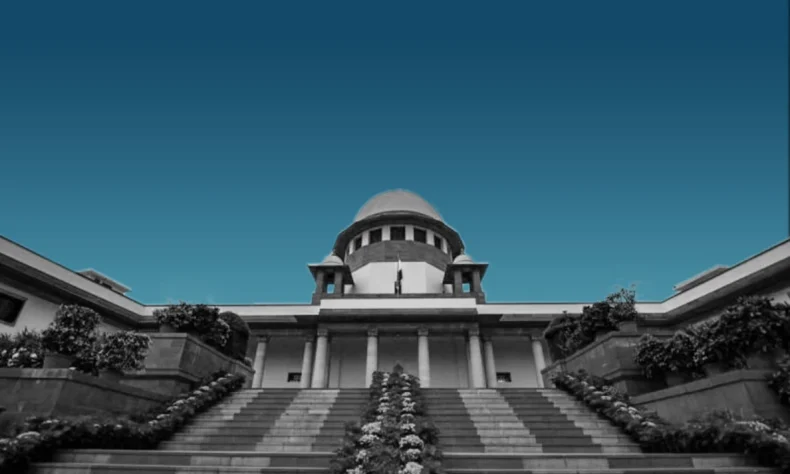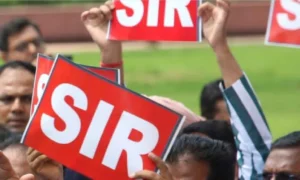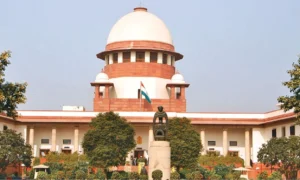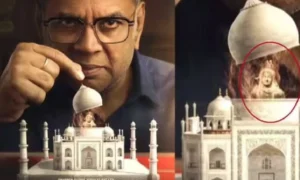
The Supreme Court refused to alter its earlier interim order that allows Aadhaar to be used as proof of identity in the ongoing Special Intensive Revision of electoral rolls in Bihar.
The matter was heard by Justices Surya Kant and Joymalya Bagchi, with submissions made by senior advocates Gopal Sankaranarayanan, A.M. Singhvi, Vrinda Grover, and Prashant Bhushan on behalf of the petitioners, while the Election Commission of India was represented by senior advocate Rakesh Dwivedi. Advocate Ashwini Kumar Upadhyay appeared in person, urging the Court to revisit its earlier direction.
Justice Kant began by asking for an update on the status of the revision and how many voters had been excluded so far. Sankaranarayanan pressed for an early full hearing, warning that if the process reveals constitutional violations, it must not be allowed to continue, particularly since similar revisions are taking place in other states. Figures placed before the Court indicated that of roughly 78.9 million voters initially identified, about 49.6 million had been automatically included in the draft roll, with nearly 68.4 million linked through Aadhaar. Justice Kant observed that the main reason for omissions appeared to be missing documentation.
Counsel for the petitioners stressed the urgency of the issue, with Grover highlighting that the Bihar Assembly must be constituted by November 22 and warning that citizens could be disenfranchised by procedures that she claimed conflicted with the Representation of the People Act, 1950. Singhvi suggested that the Court list the matter for a full hearing before the end of September, emphasising that Bihar’s case could set a precedent for other states. Bhushan added that provisions of the Registration of Electors Rules, 1960, and the ECI’s manual were being ignored, pointing to delays in publishing objections online—only about 30 percent had been uploaded so far, despite rules requiring their publication within 24 hours.
Upadhyay argued that Aadhaar is not a valid proof of age or residence, is absent from the notified list of identity documents, and has even been issued to non-citizens. The bench clarified that its direction permitting Aadhaar was an interim arrangement and noted that documents such as driver’s licences or Aadhaar cards can be forged, so their use must be confined to what is legally permissible. The Court declined Upadhyay’s request to modify its earlier order, meaning Aadhaar will remain acceptable as an identity document during the revision.
The judges also questioned whether voters were receiving adequate assistance during the process, reminding the ECI of its obligation to ensure transparency and provide facilitation. Weekly reports on the progress of claims and objections will continue, with all parties directed to file their submissions by October 7. The final electoral roll is to be published by October 1, after which the Court will hear the matter in detail.
📰 Crime Today News is proudly sponsored by DRYFRUIT & CO – A Brand by eFabby Global LLC
Design & Developed by Yes Mom Hosting






